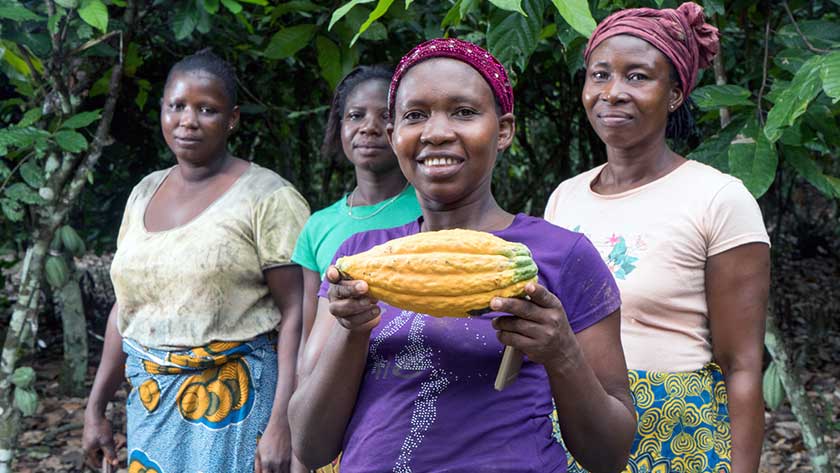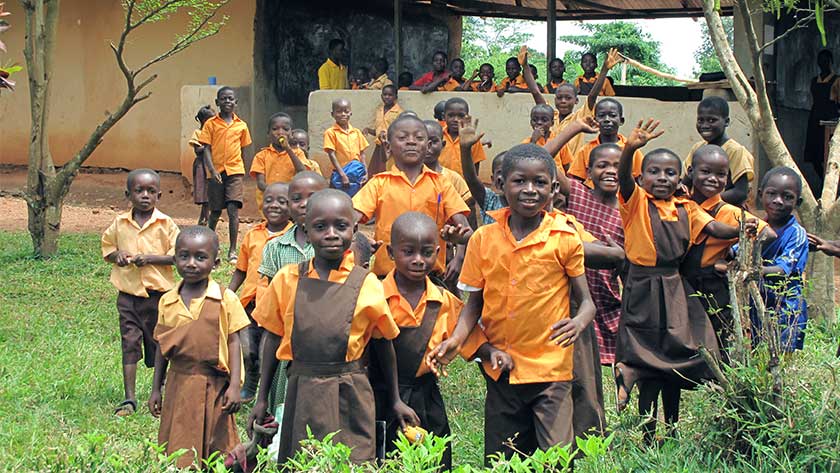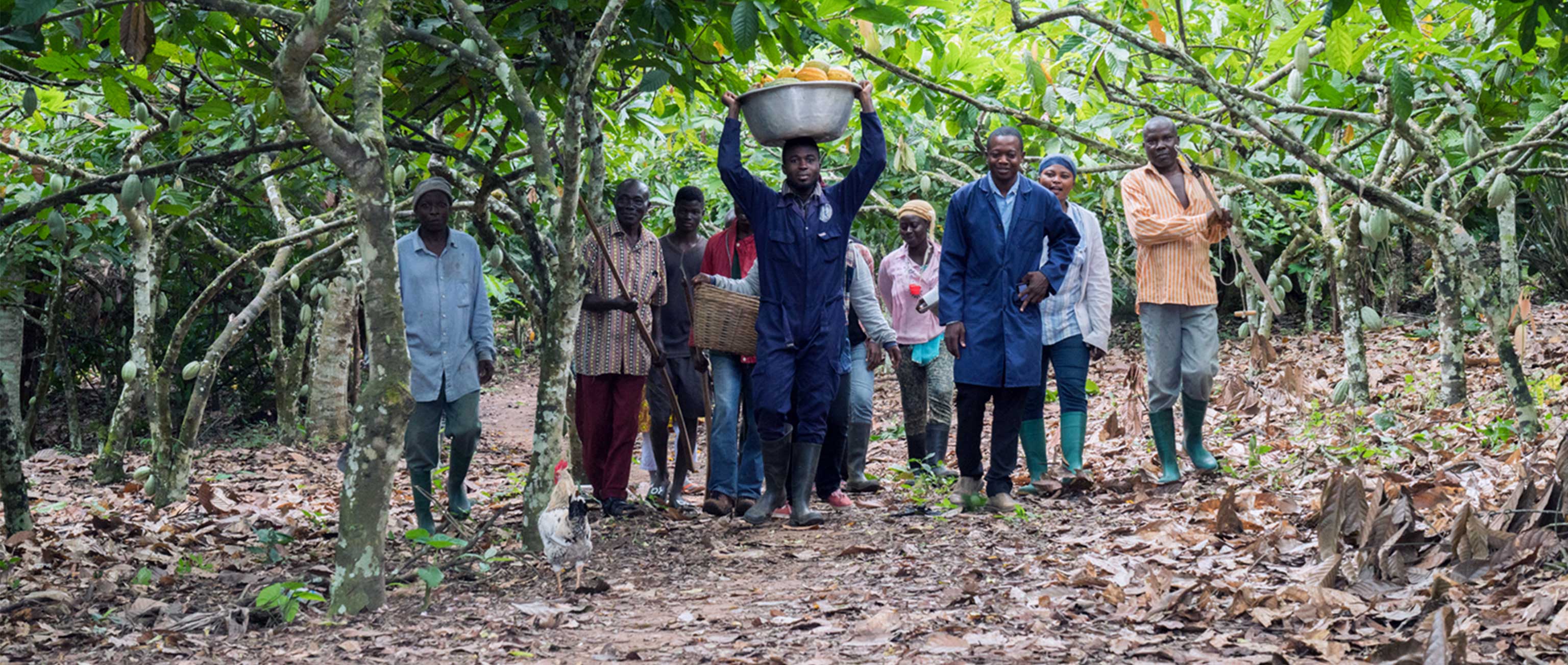Sustainable Solutions at the Base of the Supply Chain: The Case for Cocoa
When you think of chocolate, you probably conjure up thoughts of hot chocolate after skiing or memories of a favorite person who offered you a box of Belgian truffles on Valentine’s Day. Not surprisingly, this $100 billion-a-year industry stirs up passion and pleasure in many of us. However, you may rarely think of 2 million smallholder cocoa farmers toiling away during long hot hours in West Africa to produce the beautiful bean that the Mayans called xocoatl. The Latin name for the cocoa tree is Theobroma Cocoa, meaning ‘food of the gods.’ I’m lucky. In my job, I get to taste some exquisite chocolate, but more importantly, I spend a lot of my time thinking about a multitude of economic, social, and environmental problems facing cocoa farmers.
Please join me at a delegate-led discussion at the Skoll World Forum on April 12 to discuss “Sustainable Solutions at the Base of the Supply Chain” using cocoa as a case study.
At the World Cocoa Foundation, we bring together the leading cocoa and chocolate companies to work on issues of sustainability at the base of the supply chain. Our efforts, which cover nearly 80 percent of the global supply chain, aim to create a sustainable and thriving cocoa sector. Where farmers prosper, cocoa-growing communities are empowered, human rights are respected, and the environment is conserved. No other global supply chain is as uniquely placed as cocoa to contribute to the Sustainable Development Goals and bring about the wholesale alleviation of poverty in rural West Africa. More than 60 percent of global production comes from the West African nations of Côte d’Ivoire and Ghana. Just as production is highly concentrated, so are processing and manufacturing, which are carried out by companies that have committed to addressing sustainability.
A typical cocoa farmer works on a plot of not more than 3.5 hectares and uses income gained from cocoa to support between six and eight family members. A recent study showed that over two-thirds of cocoa farmers in Côte d’Ivoire live below the poverty line. It also found that 34 percent of farmers were extremely poor (less than $1.25 per day) and that fully 39 percent were poor (defined as income between $1.25-$2.50 per day).

Despite these fundamental challenges, solutions are within reach. Evidence shows that with improved planting materials and proper management practices, cocoa farmers can double or triple their yields—that means going from an annual income of $2,500 per year on a typical smallholder farm to $7,000 or more. At WCF, we’ve also modeled this out to create a deeper understanding of how an individual farmer can transform household income through proper planning and farm management.
WCF further recognizes that, in an era of low global commodity prices, cocoa needs to be considered within a diversified mixture of on-farm and off-farm household income. Planting food crops for sale on the market and adding value to these crops through processing supports household food security and brings in much needed additional income. Cocoa income can be an anchor for the household providing steady reliable cash income but it isn’t everything.
Still, other challenges exist at the household level including access to basic education for all school-aged children, which improves human capital but also helps to combat the use of child labor on cocoa farms. World Cocoa Foundation’s companies are putting in place systems and procedures to identify children who might be vulnerable to child labor. They are also creating income generating opportunities for women, who supply the bulk of cocoa farm labor but rarely have any control over managing the family’s income. Through capacity building and supporting access to financial services and technical assistance, our members help women diversify their livelihoods and learn a new skill—further building a resilient income base and human and social capital.

I am very pleased to lead this discussion on April 12 at the Skoll Forum into the potential for novel partnerships that can support the transformation of the cocoa supply chain from its current state to a sustainable and prosperous sector. As one of the premier venues for the world’s social entrepreneurs and innovative leaders in the field of social impact investing, the Skoll Forum presents an inimitable opportunity to think through creative solutions at the base of the supply chain.
I see multiple benefits for this unique global supply chain. Our member companies can access some of the most innovative and transformational solutions that hatch from the social impact incubators of the world. Hard-working cocoa-growing communities and farmers that produce the main ingredient for our chocolate deserve access to the wealth of thinking, creativity, and even innovative finance models that the Forum’s attendees bring with them. Many of the solutions already developed could be easily deployed to the communities in which cocoa farmers live—partnerships with multinational companies can help overcome hurdles, generate investment capital and troubleshoot the logistical realities of scaling up.
WCF has forged strong working relationships with governments and local leaders that bring trust, energy, and leadership to local development challenges. These uncommon partnerships can create unique solutions to problems at the base of our supply chain, lifting millions out of poverty. I look forward to meeting you in Oxford and hope that you will join the discussion.



